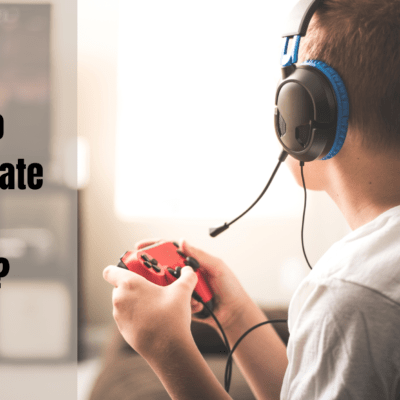Why do parents hate video games: Video games have become a dominant form of entertainment, especially among younger generations. However, it is common to find parents who express concerns or even disapproval towards video games. In this article, we will talk about some common reasons why parents may have negative feelings toward video games.
Why do parents hate video games:
Lack of understanding
One of the primary reasons parents may dislike video games is a lack of understanding about video games itself. Many parents did not grow up with video games as a major part of their lives and may struggle to grasp their appeal or benefits. This lack of understanding can lead to doubt and concern regarding the potential impact of video games on children’s development.
Think of video games as a negative influence
Parents may worry about the possible negative influence of video games on their children. Media reports emphasizing cases of addiction, violence, or unsuitable content can fuel these concerns. Some parents fear that excessive gaming may lead to poor academic performance, social isolation, or even physical health issues due to lethargic behavior.
Time management and priorities
Another common problem is the amount of time children spend playing video games. Parents may worry that excessive gaming can lead to the ruin of other necessary activities such as schoolwork, physical exercise, or social interactions. They may consider video games as a distraction that interferes with their child’s overall development and success.
Lack of productivity
Parents may see video games as a passive and unproductive form of entertainment. They may like activities that encourage creativity, physical activity, or academic stimulation. Problems arise when they think about video games as lacking in these areas and fear that their child’s time is being wasted.
Also Read: Life skills for teens.
Safety and online interactions
With the rise of online multiplayer games, parents may worry about the safety of their children while engaging with strangers online. They may have concerns about online bullying, inappropriate conversations, or exposure to other inappropriate content. This stress can add to a negative perception of video games as an unsafe environment.
At the end
While it is necessary to recognize the concerns that some parents have about video games, it is equally important to encourage open and productive discussion. Parents and children can benefit from discussing the merits and potential risks of video games, finding common ground, and establishing healthy boundaries. Like, when and how much time children can spend playing a video game. Video games, when played in moderation can offer benefits such as problem-solving skills, hand-eye coordination, teamwork, and even educational value. By understanding and addressing parental problems, it becomes possible to bridge the gap between parents and children. Also, encourage a balanced approach toward video games that respect the interests and well-being of children.



